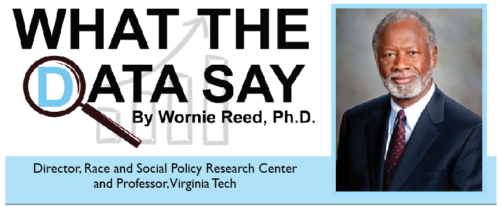National Commentary
Law Enforcement Bill of Rights

Police officers who use excessive force against citizens, including murder, have rights and privileges that regular citizens do not have. I have written recently about how police unions protect police officers from prosecution. However, it is unclear to me, which is more outrageous in its protection of police officers—unions or law enforcement bill of rights.
Yes, you read that correctly. In at least 16 states and counting (Georgia is about to pass such a law), there are laws called law enforcement bill of rights (LEOBR). While these laws differ from state to state, they operate very similarly.
Here is how a typical police misconduct investigation works in most states with LEOBR, as described by Mike Riggs in a 2012 article in Reason, titled, “Why firing a Bad Cop is Damn Near Impossible”:
“A complaint is filed against an officer by a member of the public or a fellow officer. Police department leadership reviews the complaint and decides whether to investigate. If the department decides to pursue the charge, it must inform the officer and his union. That is where the special treatment begins, but it doesn’t end there.
Unlike a member of the public, the officer gets a “cooling off” period before he has to respond to any questions. Unlike a member of the public, the officer under investigation is privy to the names of his complainants and their testimony against him before he is ever interrogated. Unlike a member of the public, the officer under investigation is to be interrogated ‘at a reasonable hour,’ with a union member present. Unlike a member of the public, the officer can only be questioned by one person during his interrogation. Unlike a member of the public, the officer can be interrogated only ‘for reasonable periods,’ which ‘shall be timed to allow for such personal necessities and rest periods as are reasonably necessary.’ Unlike a member of the public, the officer under investigation cannot be ‘threatened with disciplinary action’ at any point during his interrogation. If he is threatened with punishment, whatever he says following the threat cannot be used against him.
What happens after the interrogation again varies from state to state. But under nearly every law enforcement bill of rights, the following additional privileges are granted to officers: Their departments cannot publicly acknowledge that the officer is under investigation; if the officer is cleared of wrongdoing or the charges are dropped, the department may not publicly acknowledge that the investigation ever took place, or reveal the nature of the complaint. The officer cannot be questioned or investigated by ‘non-government agents,’ which means no civilian review boards. If the officer is suspended as a result of the investigation, he must continue to receive full pay and benefits until his case is resolved. In most states, the charging department must subsidize the accused officer’s legal defense.
“A violation of any of the above rights can result in dismissal—not of the officer, but of the charges against him.”
By prohibiting non-government agents’ involvement like civilian review boards, some states have codified into law prohibitions against meaningful civilian police review boards.
Remember that the description above of typical cases does not always cover the most egregious provisions, like in Virginia, where charges against an officer must initially be made in writing. And the officer must be given a reasonable length of time to respond, “but in no event shall it be less than five calendar days unless agreed to by the law enforcement officer.” Also, “any questioning of the officer shall take place preferably when the officer under investigation is on duty.”
Many citizens, groups, and states are considering and sometimes passing legislation to make some police tactics illegal and do other tinkering around the edges. However, until these LEBOR laws are repealed or changed substantially along with most police union contracts, we are seriously unlikely to see any changes in the police use of excessive force, including murders of unarmed black people.